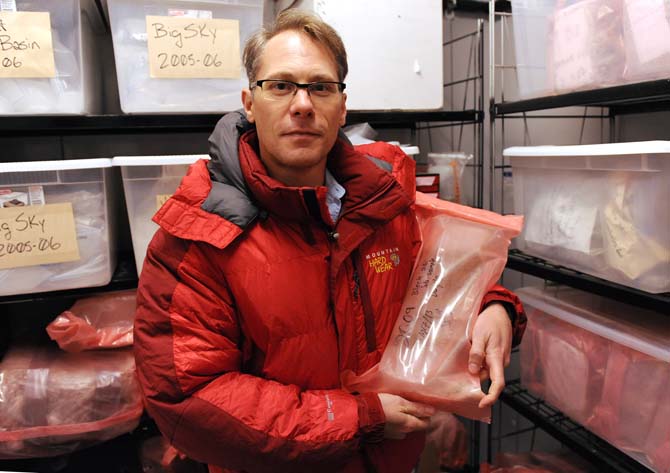The 16-day federal government shutdown has ended, but its effects are still reverberating through circles within the University.
Brent Christner, associate professor of biological sciences, should be preparing his research team for the roughly 8,000-mile trip to Antarctica to continue microbial research, but a lapse of funds from the National Science Foundation has buried those plans.
Researchers are only able to work on the continent from roughly October through February because other months are riddled with little to no light and extreme temperatures, Christner said. Now that his field season has been canceled, there is a possibility he won’t be back to Antarctica for some time.
“It’s up in the air for the next trip,” Christner said. “The seasons are planned long in advance – it’s not as simple as going next year.”
Biological sciences Ph. D. student Amanda Achberger has been traveling to Antarctica since 2009, accompanying Christner in his research. Without a trip to the continent this year, Achberger said she is essentially missing an entire year of new data for inclusion into her dissertation.
“I think there is enough from last season to complete my graduate work, but it does kind of take away from the point of the project,” Achberger said. “It’s an incomplete story from what we wanted to tell.”
Christner has been to Antarctica on seven different occasions for varying topics of research, and last year’s visit was an exciting one, he said. He and his research team drilled through thousands of feet of ice to study microorganisms living in the sub-glacial Lake Vostok.
There is an entire network of rivers and lakes under glacial ice in Antarctica that contain flowing water, which eventually drains into the ocean.
“Many of these lakes have been cut off from the outside world for thousands of years,”
Achberger said. “From a microbiologist’s perspective, it’s a very unique environment. Evolutionary speaking, there’s a lot to be gained.”
Samples of microorganisms collected in Lake Vostok are currently being studied, and Christner and Achberger are looking to understand the organisms, environment below the ice and how the lake runoff can affect diversity of the surrounding ecosystem.
Though no new data is being collected for University researchers this year, the good news is, according to Achberger, the amount of research collected last field season yielded ample material to be studied.
“From four days of science we have years of research to do,” she said. “I will be in grad school for another two years and I have ample data to keep me busy for that time.”
Arctic Blues: Government shutdown affects University science research
October 31, 2013
Biological science associate professor Brent Christner holds a sample of ice from Antarctica on Wednesday, October 30, 2013 in the Life Sciences building.





